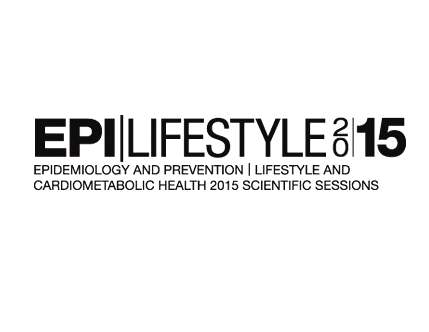EPI Lifestyle 2015
The EPI/Lifestyle 2015 Scientific Sessions are unique in content and format. The primary goal is to promote the development and application of translational and population science to prevent heart disease and stroke and foster cardiovascular health. Presentations on the use of new electronic approaches and tools to epidemiologic and behavioral research will be emphasized this year.
The Councils on Epidemiology & Prevention (EPI) and Lifestyle and Cardiometabolic Health (Lifestyle) jointly plan the EPI/Lifestyle 2015 Scientific Sessions. The sessions focus on risk factors, obesity, nutrition, physical activity, genetics, metabolism, biomarkers, subclinical disease, clinical disease, healthy populations, global health, and prevention-oriented clinical trials.
The program is designed to present new findings on:
• Cardiovascular disease prevention trials.
• causes and mechanisms of health factors, subclinical, and clinical cardiovascular diseases.
• relationships of nutrition (diet) and physical activity (fitness) with cardiometabolic health.
• relationships of obesity, diabetes, and renal disease with cardiometabolic health.
• genetic and environmental epidemiology of cardiometabolic health.
• effects of lifestyle interventions on cardiometabolic disease and its health factors.
• population trends in cardiovascular diseases and their health factors.
• global cardiovascular health
The program also will provide participants with the opportunity to learn current information about:
• advances in measuring diet and physical activity.
• advances in techniques in preventive cardiology.
• behavioral strategies to promote and sustain lifestyle modifications.
• outcomes research and guideline development related to cardiovascular health
• advances in methods relevant to observational studies, clinical trials and population surveillance..
The program includes presentations of new high-quality, high-impact research, organized around oral, moderated poster, and poster abstract presentations. Special translational science lectures and debates address current issues relevant to cardiometabolic health and preventive cardiology. This format maximizes the opportunities for thought-provoking multidisciplinary interactions across a wide spectrum of scientists, junior and established.
The sessions are designed to enhance the careers of young and early mid-career investigators and practitioners committed to the promotion of cardiometabolic health.
